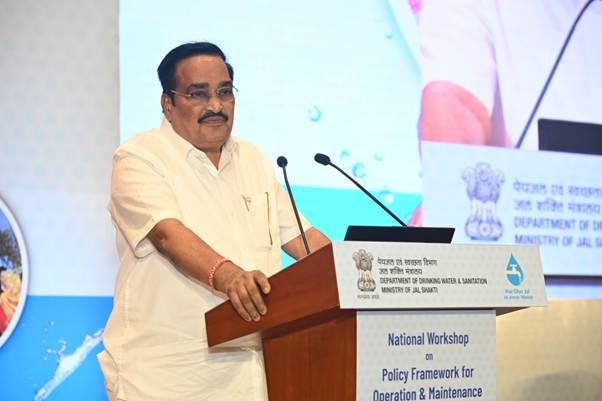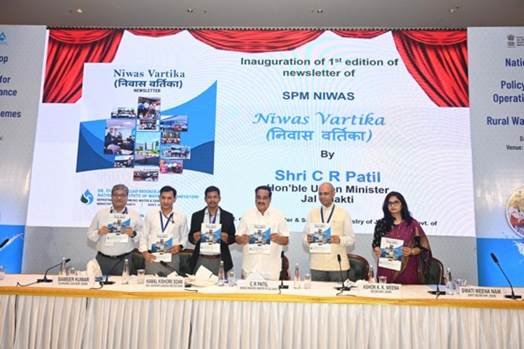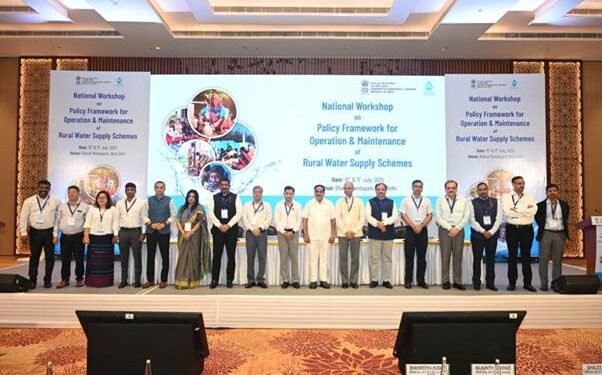New Delhi- New Delhi witnessed the inauguration of a landmark two-day national workshop by Union Minister of Jal Shakti, Shri C.R. Patil, aimed at reshaping the future of rural water governance in India. Held on July 10 and 11, 2025, the event was organised by the Department of Drinking Water & Sanitation under the Ministry of Jal Shakti. It brings together key stakeholders from across the country to develop a strategic policy framework for the operation and maintenance (O\&M) of rural piped water supply systems, marking a crucial shift in the Jal Jeevan Mission’s journey from infrastructure building to service sustainability.
In his opening remarks, Shri Patil emphasised that maintaining the flow of clean water to every rural household is now the mission’s true test. He stressed that sustainability in O\&M is vital to ensure uninterrupted water supply and called for collective effort, especially during challenging seasons like the monsoon. Reiterating the vision of “Har Ghar Jal,” he said that the mission’s success must be measured not by pipelines laid, but by the consistent delivery of safe water to rural families.

The workshop saw participation from senior officials of the Jal Shakti Ministry, including DDWS Secretary Shri Ashok K. K. Meena and Mission Director Shri Kamal Kishore Soan. Also present were representatives from states and union territories — additional chief secretaries, engineers-in-chief, mission directors, district magistrates, and others — underscoring the collaborative nature of the initiative.
Shri Meena highlighted the progress made under the Jal Jeevan Mission, which now covers over 15.66 crore rural households with tap water, achieving more than 81% national coverage. However, he cautioned that the challenge has now shifted towards sustaining this achievement through efficient service delivery. He underscored the importance of integrating mobile and digital tools to enhance accountability and streamline operations.
Echoing this, Shri Soan stressed the need for a robust policy that empowers local communities and utilises technology to manage rural water systems effectively. He described the workshop as a platform for collaborative thinking, aiming to strengthen governance models, institutional systems, and service delivery strategies to ensure the longevity of water services.

Day one featured roundtable discussions across seven key themes, including institutional planning, rural utility management, asset lifecycle oversight, financing innovation, skilling in the WASH economy, water quality monitoring, and regulatory frameworks. These discussions allowed states and UTs to share experiences from the ground and explore scalable solutions. The open-house format further fostered cross-state learning and dialogue.
The Jal Jeevan Mission’s core principles — community involvement, cooperative governance, political commitment, and efficient resource use — were strongly reiterated throughout the day. The release of the inaugural issue of *Niwas Vartika*, the SPM NIWAS quarterly newsletter, added a milestone to the event.
Looking ahead, Day Two will explore how emerging technologies like AI, GIS, and space-based monitoring can support rural water operations and ensure sustainability at scale. With a focus on strengthening grassroots participation and technological adoption, the workshop aims to future-proof India’s rural water systems and truly realise the dream of “Har Ghar Jal.”






